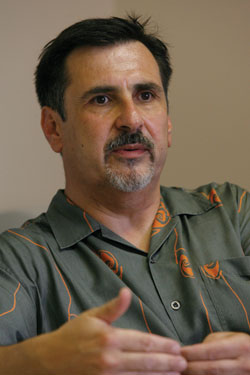New book explores uneven success on gay rights issues
|
When Temple University Political Science Professor Gary Mucciaroni looked across the spectrum of gay rights issues, he saw a puzzle: Why have gays and lesbians been so successful in achieving some of their goals and not others? |
 Courtesy University of Chicago Press
Same Sex, Different Politics by Political Science Professor Gary Mucciaroni.
|
|
results, and sheds light on the conditions that lead to contradictory policies, across six key LGBT rights issues: legalization of homosexual conduct, military service, adoption, marriage and partner recognition, hate crimes, and civil rights. |
|
 Photo by Ryan S. Brandenberg/Temple University
Mucciaroni
|
But, it does not account for the outcome on the question of military service, where there had been high public support in favor of ending the ban. Conversely, in the area of adoption and the legalization of homosexual conduct, gays and lesbians have gained those rights, despite the lack of public support. Closer examination of gay rights in the area of adoption led Mucciaroni to understand the critical role third-party stakeholders play. Mucciaroni found that social workers and judges were important allies in the fight for adoption rights for gays and lesbians. According to Mucciaroni, the vagueness of adoption laws — along with studies that say same sex parents are as successful as heterosexual couples and the societal need to give children stable, permanent homes — has allowed stakeholders, such as social workers, adoption agencies, family court judges, and lawyers to have a real impact in this arena. Another example of the impact of stakeholders, according to Mucciaroni, are the respected legal reformers in the 1960s who advocated ridding the books of laws that were difficult to enforce. They argued successfully that government had no |
|
legitimate role in regulating consensual sexual conduct and that such laws diminished respect for the law in general. “The reformers’ position was: ‘why have a law that you can’t enforce?’,” Mucciaroni said. |
|